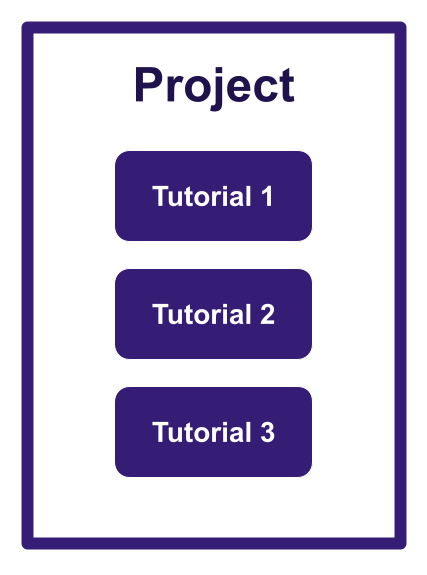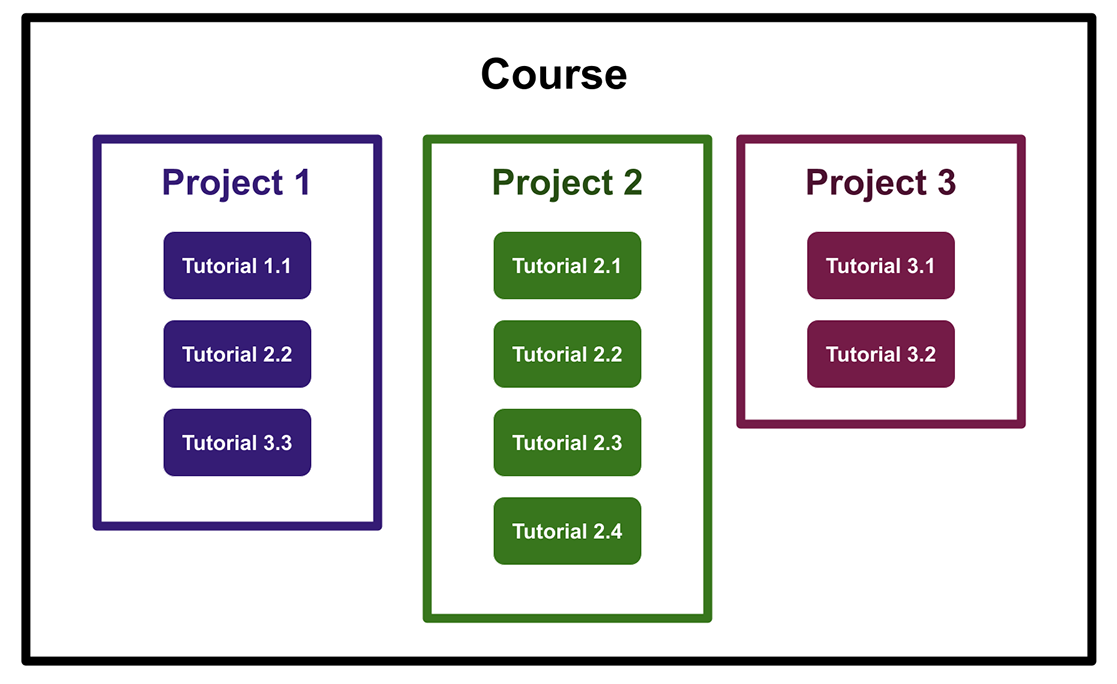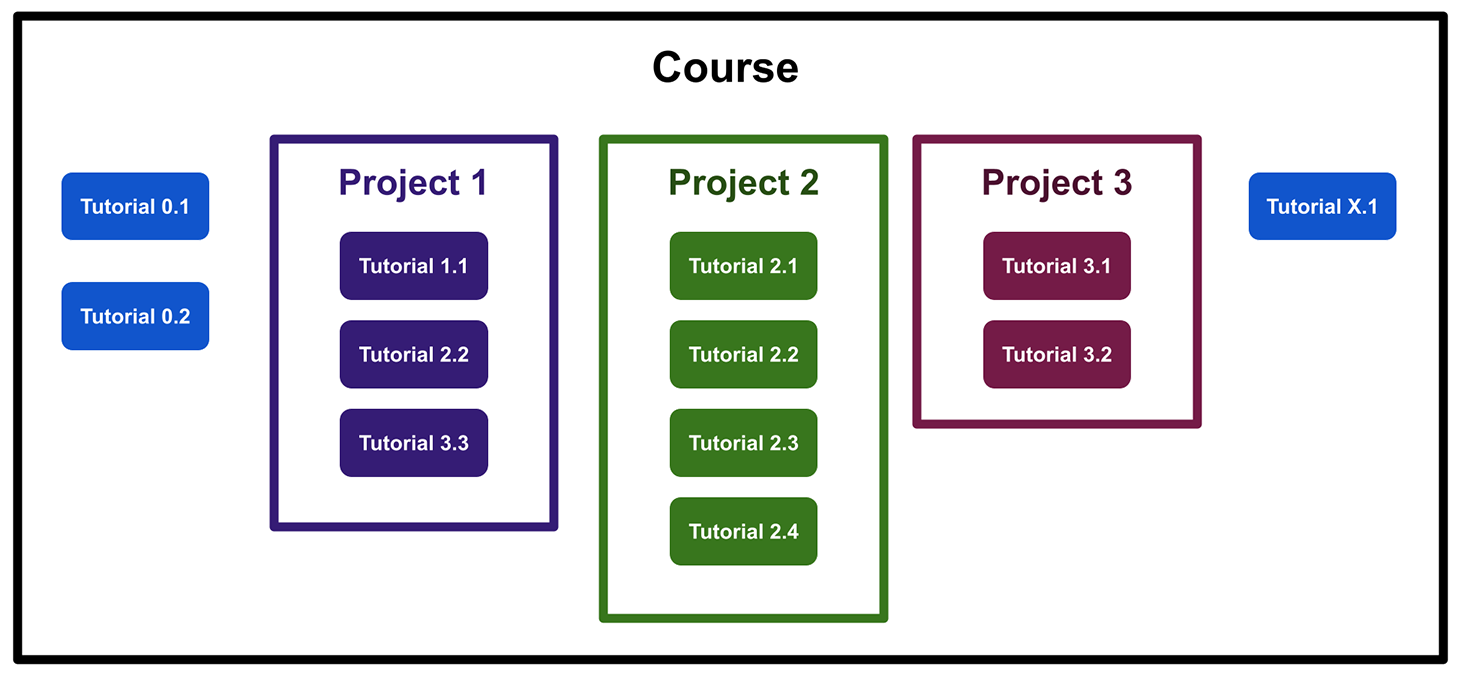Content types
YOUR CHARTER
All charters: required
Before you outline your learning experience, you'll need to know the structure of learning experiences on the Learn platform so that you can structure your outline the same way.
Tutorials
Tutorials are the basic unit of learning content on Unity Learn. One tutorial generally covers several LOs.
There are three current tutorial formats:
- Standard tutorials, which are broken down into a sequence of steps that learners follow in a set order.
- Quizzes, which are multiple choice quizzes that learners can complete as formative or summative assessments.
- Submission tutorials, which are where learners can upload their responses to submission assessments.
Tutorials are the only content type that contains text and media content. Other content types consist of an introductory summary and other nested content. You'll use the other content types to organize your tutorials.
Projects
Projects, also called units, are groups of tutorials that cover one or more skills. They are generally sequential (that is, learners will follow the tutorials in a project in the order that you determine), but we can guide you on using them for non-linear learning content if this is required for your learning experience.

note
The term "project" is currently in use on the Learn platform. We also use "unit" to distinguish it from the many other types of projects, like Unity projects or development projects.
Courses
Courses are sets of projects (or units) and tutorials that cover one or more competencies. They are generally sequential (that is, learners will follow the content within the course in the order that you determine), but we can guide you on using them for non-linear learning content if this is required for your learning experience.

Tutorials within a course are most commonly organized into projects (or units), but you can also include separate tutorials in the course container. This is useful if you want to include introductory or conclusion tutorials without creating additional projects for them.

Other types of content
There are some other content types on Unity Learn. These content types are used by the Real-Time Learning team to make learning pathways, and include the following:
- Pathways, which are guided learning journeys to support a learner to fulfill a larger learning goal, such as to prepare for a specific job role (for example, the Junior Programmer pathway) or to create a particular holistic outcome (for example, to create a particular type of game).
- Missions, which are containers to organize content within a pathway. Missions are used in place of courses; content within them can be organized into tutorials and projects in the same ways.
- Content sets, which are multiple sets of content that learners choose from in order to complete a particular mission.
You will not use these content types unless you are working on a learning pathway.
Alignment to skills database
Typically, a mission or course covers one competency, a project covers one or more skills, and a tutorial covers most or all the LOs in a skill.
There are no rules about aligning content precisely to items in the skills database, but better alignment does create a better learner experience. For example, when learners complete a course, they will look for the relevant competencies and skills on their My Learning page.
In our skills database, we map tutorials to the LOs they cover.